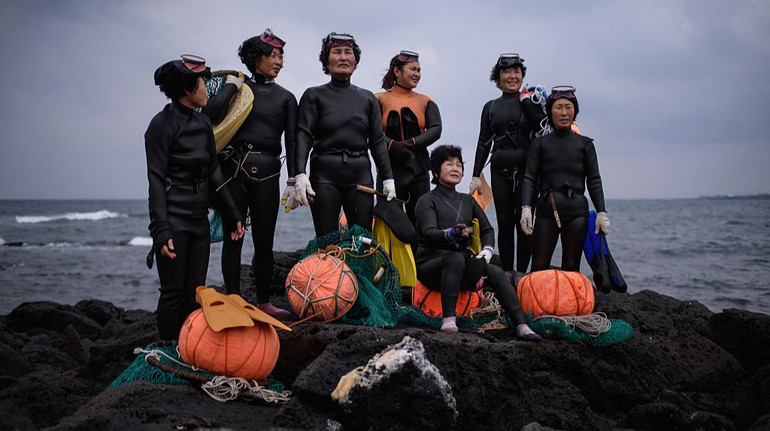As it affected the DNA

Modern « Women of the Sea » in South Korea
Photo: Ed Jones/AFP/Getty Images
For millennia, women from the South Korean Island of Changi were producing food, collecting it in icy water.
Scientists have found that « women of the sea » adapted to extreme practice, which was reflected in their DNA.
This is stated in a study that Posted In Cell Reports journal, informs Popular Science.
Heno generation, which translates as « women of the sea » has long been underwatering breathing. Immersion in ice water was used as a way to obtain food – sea hedgehogs, shellfish and algae.
During immersion in mammals, the reflex of diving works, which causes a number of physiological reactions. Thus, people slow down the heart rate, increase blood pressure, which changes the function of the internal organs, and reduces blood vessels.
In addition, the body responds to the contraction of the spleen, which is responsible for the storage and filtration of blood. Due to this, the body circulates more oxygen -saturated blood.
Researchers have studied the impact of scuba diving on 30 traditional dives, 30 locals and so many residents of Seoul.
Also, scientists analyzed the physiological data of participants during simulated dives.
This helped to establish that the « women of the sea » during immersion had a much lower blood pressure than the residents of Seoul. Similar skill had a third of the indigenous people of Chang.
Scientists have found that this feature was reflected in DNA, as well as changes in the number of erythrocytes, pain perception and sensitivity to the cold.
Scientists believe that traditional divers from Indonesia, Malaysia and Philippines have changed their spleen. However, the South Koreans did not have such features, but prolonged immersion affected blood pressure, which became unexpected for scientists.
Researchers believe that changes in DNA are a consequence of evolutionary changes.
« Diving is truly dangerous. Even the most experienced swimmers can lose consciousness underwater, get stuck or not cope with the flow. – said the senior author of the study and the evolutionary genetics from Utah University (USA) Melissa Hilardo.
Scientists suggest that the ability to regulate blood pressure in « women of the sea » is associated with an attempt to protect pregnant and their future children. This is explained by the fact that during this period, the woman and the fetus are particularly vulnerable to blood pressure disorders.
« If you diver and have hypertension then you probably will have fewer kids. Maybe one instead of three »,-says the leading author of the study Diana Agillaar-Gaus.
According to the co -author of the study of Melissa Ilardo, such immersion during pregnancy could form the genetics of the whole island.
We will remind, scientists have found that some areas of human DNA can change much faster than they thought before.





:format(jpeg):fill(f8f8f8,true)/s3/static.nrc.nl/taxonomy/5d179ba-Sparreboom%252C%2520Tessa%25202023%252001%25201280%2520WEB.png)

